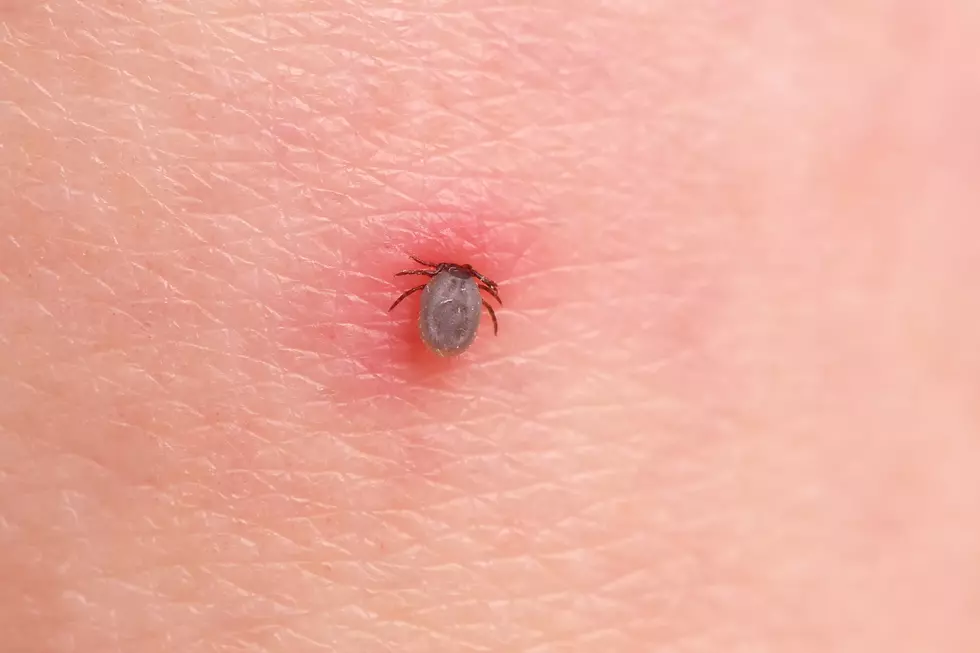
How to Avoid a Tick Carrying a Deadly Brain Swelling Virus
Officials are trying to prevent another death after a Hudson Valley resident was killed from a tick-borne brain swelling virus.
On Wednesday, The Ulster County Department of Health was notified that an Ulster County resident passed away from the Powassan virus, a rare and often serious disease spread by infected ticks.
"I have directed our Health Commissioner and County departments to take every step necessary to help prevent the spread of tick-borne diseases including the implementation of an expanded public awareness campaign," Ulster County Executive Pat Ryan said in a statement on Thursday.
The resident, who lives in Gardiner, had additional underlying health conditions and passed away earlier this week, according to the Ulster County Department of Health.
“On behalf of the county, we send our heartfelt condolences to the family and friends of our neighbor who passed away. Although exceedingly rare, the Powassan virus and other tick-borne diseases are a serious threat and I encourage everyone to be extra vigilant when taking part in outdoor activities, Ryan said.
This is the first known case of an individual diagnosed with the Powassan virus in New York State this year, officials say.
The Powassan virus is spread by the same deer tick that carries Lyme disease. Powassan, which in some cases has been fatal, attacks the nervous system and can cause dangerous brain swelling.
There is currently no treatment for the virus, which according to the CDC kills around 10 percent of people who become sick. Half are left with permanent neurological problems.
Signs and symptoms of infection can include fever, headache, vomiting, weakness, confusion, seizures and memory loss.
People with severe cases of the virus often need to be hospitalized to receive respiratory support, intravenous fluids, or medications to reduce swelling in the brain, according to the CDC.
In 2017, the last year on record, there were 33 people diagnosed with the virus in the United States. 16 of those 33 live in New York, according to the CDC. Two people died from the virus.
In 2016, 21 people were diagnosed with the virus across the United States. Three died from the virus. In 2015, there were six cases of the Powassan virus.
In 2018, Hudson Valley Post reported on residents in Dutchess County and Columbia County who were diagnosed with the Powassan virus.
You can reduce your risk of being infected by taking the following precautions:
- Use of insect repellents containing DEET for skin applications and Permethrin for clothing and shoes.
- Wearing long sleeves and pants
- Avoiding bushy and wooded areas
- Thorough tick checks after spending time outdoors.
- Staying on clear well-traveled paths.
- Wearing light-colored clothing to spot ticks easily.
- Tucking pants into socks.
- Showering as soon as possible after spending time outdoors.
- Checking everyone including pets frequently and at the end of each day, and removing all ticks promptly and properly.
There are no vaccines to prevent or medicines to treat Powassan virus infection. People with severe Powassan virus disease often need to be hospitalized to receive support with breathing and swelling in and around the brain.
Last month someone from New Jersey died after being bitten by a tick with the Powassan virus.
- Tick Carrying Deadly Brain Swelling Virus Kills in Hudson Valley
- Man Allegedly Recorded Women, Children at Hudson Valley Walmart
- Ice Cream Trucks 'Banned' in Parts of Hudson Valley
- Nearly 100 Headstones Damaged at Hudson Valley Cemetery
- Award-Winning Hudson Valley Restaurant Will Serve Food Later
- Police Investigate Shooting at Newburgh Waterfront
- Hudson Valley Man Murdered Father Who Was Protecting Son
- Customer: Hudson Valley Gas Station Fills Up Gas Tanks With Water
- Lower Hudson Valley Dad Arrested After Babies Die in Hot Car
- Petition Wants Confederate Railroad Perform in Hudson Valley


